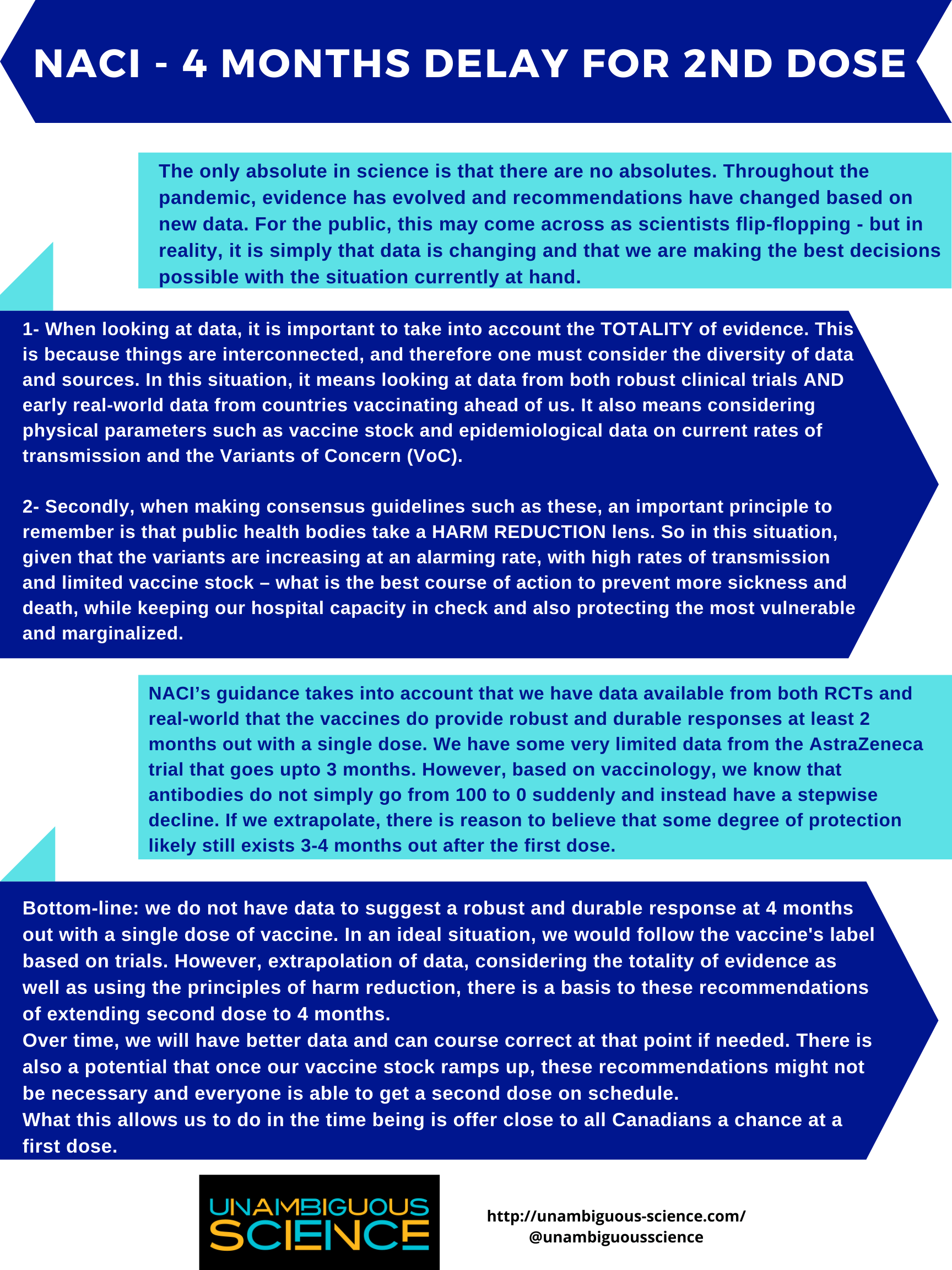NACI – 4 month dosing delay
I’ve received many questions on NACI’s most recent recommendations on delaying second doses up to 4 months.
This is a complex topic, but I think important to discuss for transparency. The only absolute in science is that there are no absolutes. Throughout the pandemic, evidence has evolved and recommendations have changed based on new data. For the public, this may come across as scientists flip-flopping – but in reality, it is simply that data is changing and that we are making the best decisions possible with the situation currently at hand.
1- When looking at data, it is important to take into account the TOTALITY of evidence. This is because things are interconnected, and therefore one must consider the diversity of data and sources. In this situation, it means looking at data from both robust clinical trials AND early real-world data from countries vaccinating ahead of us. It also means considering physical parameters such as vaccine stock and epidemiological data on current rates of transmission and the Variants of Concern (VoC).
2- Secondly, when making consensus guidelines such as these, an important principle to remember is that public health bodies take a HARM REDUCTION lens. So in this situation, given that the variants are increasing at an alarming rate, with high rates of transmission and limited vaccine stock – what is the best course of action to prevent more sickness and death, while keeping our hospital capacity in check and also protecting the most vulnerable and marginalized.
NACI’s guidance takes into account that we have data available from both RCTs and real-world that the vaccines do provide robust and durable responses at least 2 months out with a single dose. We have some very limited data from the AstraZeneca trial that goes upto 3 months.
However, based on vaccinology, we know that antibodies do not simply go from 100 to 0 suddenly and instead have a stepwise decline. If we extrapolate, there is reason to believe that some degree of protection likely still exists 3-4 months out after the first dose.
Bottom-line:
We do not have data to suggest a robust and durable response at 4 months out with a single dose of vaccine. In an ideal situation, we would follow the vaccine’s label based on trials.
However, extrapolation of data, considering the totality of evidence as well as using the principles of harm reduction, there is a basis to these recommendations of extending second dose to 4 months.
Over time, we will have better data and can course correct at that point if needed. There is also a potential that once our vaccine stock ramps up, these recommendations might not be necessary and everyone is able to get a second dose on schedule.
What this allows us to do in the time being is offer close to all Canadians a chance at a first dose.

